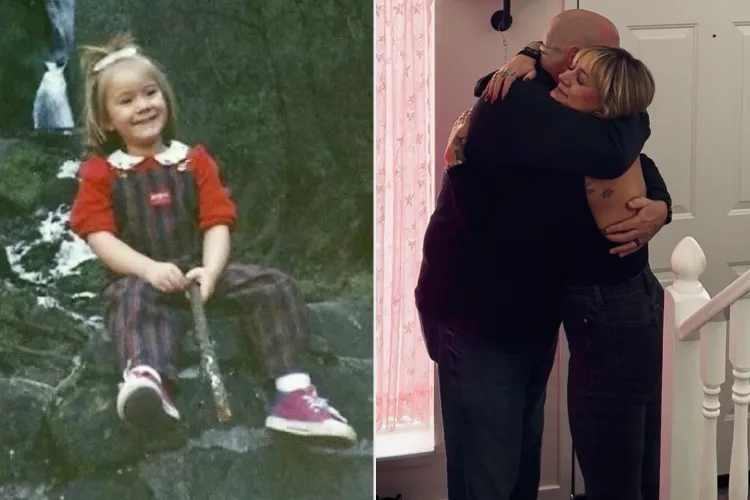After a Lifetime of Wondering, 35-Year-Old Sarah Pilkington Finds Her Biological Father Through a DNA Match in Just Three Weeks
For most of her life, Sarah Pilkington carried an invisible ache — a missing piece that followed her through childhood, adolescence, and into adulthood. Raised by her mother and a stepfather, she lived with the unending question of who her biological father was. That question, one that had lingered unanswered for thirty-five years, finally found its resolution this year in the most unexpected and heartwarming way.
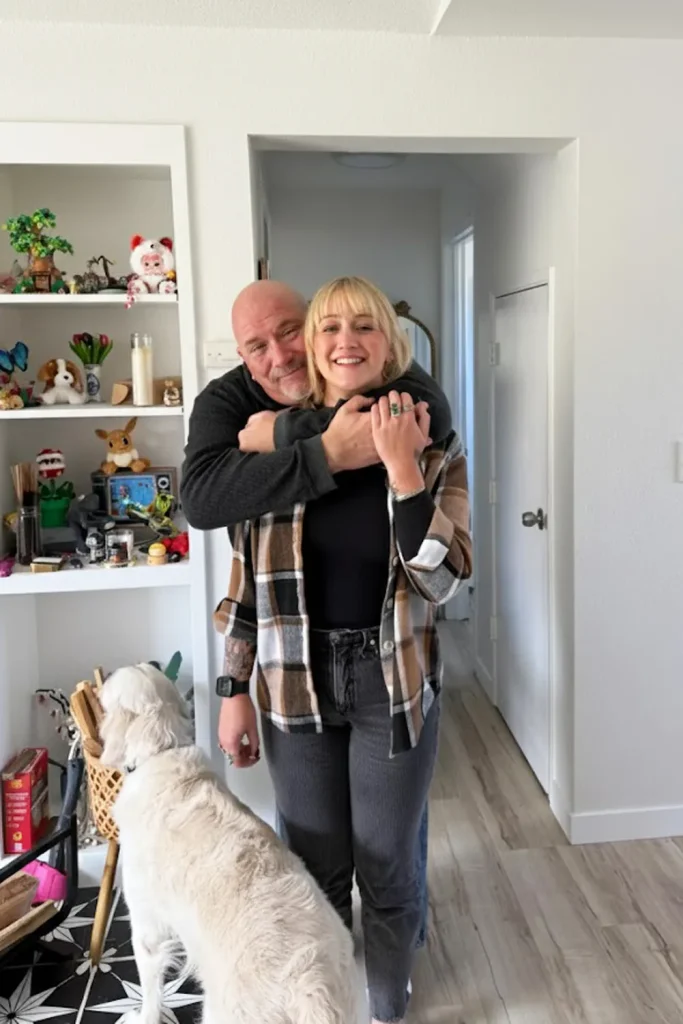
At 35, after a difficult divorce and a period of personal rediscovery, Pilkington decided to take a DNA test — not out of sudden impulse, but from a quiet readiness that had been years in the making. “I never knew who my father was growing up — it was always this big unknown for my entire life,” she shared. That sense of not knowing had always shadowed her, shaping her confidence, her relationships, and even her sense of belonging.
She ordered a home DNA kit in early August 2025 and sent it off, expecting the results to take months, maybe even longer, to mean anything. But just three weeks later, the notification appeared: she had a close match. Her heart raced. It wasn’t a distant cousin or a vague relation — it was a paternal aunt. “My sister looked her up on Facebook … I just knew,” Pilkington said.
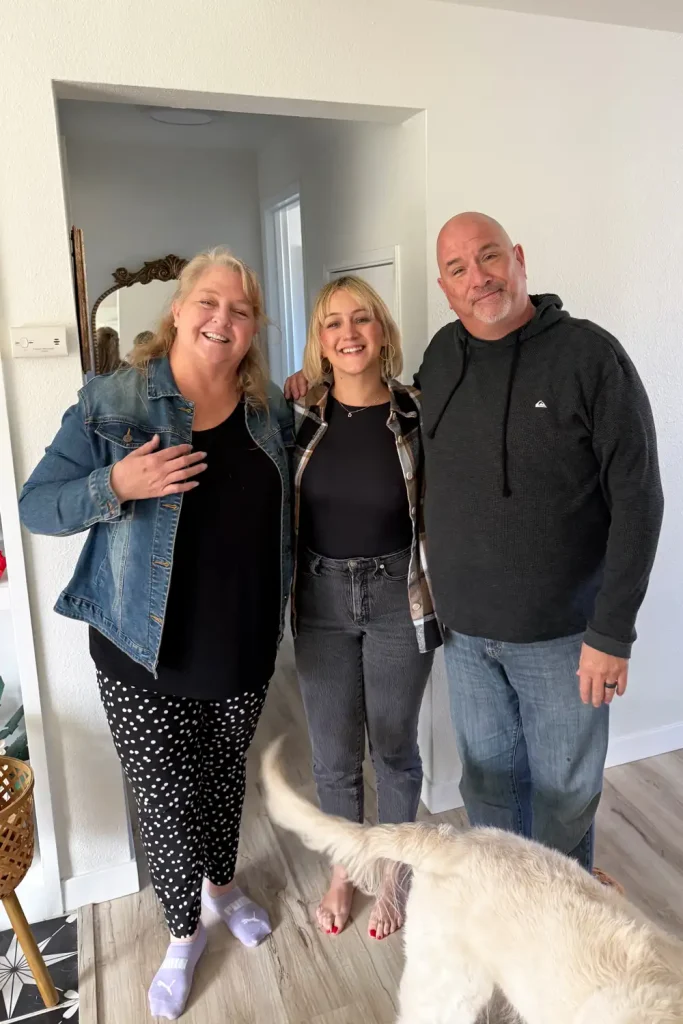
That discovery set off a whirlwind of emotion and anticipation. The aunt, upon learning who Pilkington was, immediately reached out with warmth and curiosity. She asked for details — her mother’s name, her birth year — and within hours, the truth was undeniable. Sarah Pilkington’s biological father had been found. His name was Greg Mickles, a 55-year-old living in Wildomar, California.
The first phone conversation between father and daughter was filled with disbelief, laughter, and tears. “He cried, I cried. We all cried,” Pilkington remembered. For both of them, it was a moment suspended in time — decades of wondering melting into minutes of recognition. “My dad is just like me, or I am like him. We are both tender hearts, big softies. He’s better than I hoped for.”
On October 20, 2025, Sarah Pilkington finally met her father in person at her home in Vancouver, Washington. The moment was captured in a photo that now means more to her than words can describe — the two locked in an embrace, their faces softened by emotion, the kind of hug that speaks of years lost and found again.
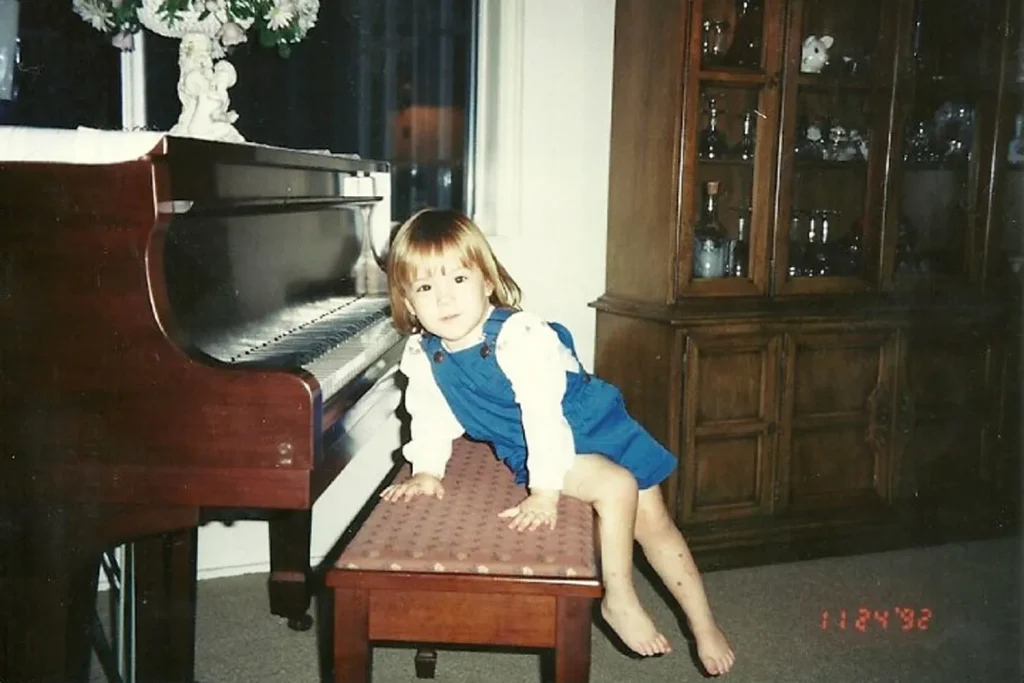
The speed and ease of the reunion surprised everyone, including Pilkington herself. Many people who set out on similar searches encounter resistance, unanswered messages, or complex emotions that take months or years to untangle. Her experience, by contrast, unfolded with rare grace. “I expected it to be messy,” she said. “Instead, it felt like everything was just meant to happen.”
Her journey wasn’t simply about finding a man; it was about reclaiming identity. “Not really having a strong male role in my life definitely impacted my self-worth,” she admitted. “But now, I feel this sense of completeness I didn’t know I was missing.”
Pilkington’s decision to begin the search came after a period of self-reflection. Her divorce had forced her to reevaluate who she was and what mattered most. “I think I needed to feel grounded enough to handle whatever I might find,” she explained. “Once I got to that place, it felt natural to start looking.”
DNA testing services have made such reunions increasingly possible, but they also come with emotional complexity. For Pilkington, preparation was key. She had the support of her sister, her partner, and close friends throughout the process. “I was afraid of being rejected by whoever my father was,” she admitted. “But I finally felt like I had enough support to go through it — no matter what happened.”
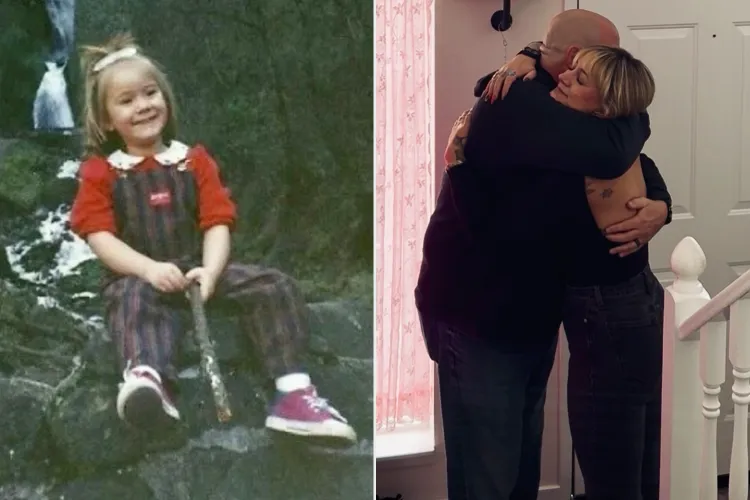
When the test revealed a match so quickly, she was stunned — and grateful. The discovery brought new connections too. Greg’s family, including cousins and extended relatives, welcomed her openly. “It wasn’t awkward at all,” she said with a smile. “It just felt right — like meeting people I’d known forever.”
The reunion has since transformed into a relationship built on understanding and shared stories. Pilkington and her father speak often, sometimes daily, catching up on everything they missed — childhood moments, old photos, life lessons, even silly habits they’ve found they share. “It’s the smallest things that get me,” she said. “Our voices sound alike. We both overthink. We both cry at movies.”
As Thanksgiving approaches, the pair are already planning their first family holiday together. It’s an emotional milestone, one that neither could have imagined just a few months ago. For Pilkington, it represents not only the beginning of a new relationship but also the end of a lifelong question. “I feel a level of peace I can’t quite describe,” she said. “It’s like I can finally exhale.”
Experts in family reunification say stories like Sarah’s highlight how DNA technology continues to reshape ideas of family and identity. But they also stress that such journeys require emotional readiness. Pilkington agrees. “You have to be ready for whatever comes. It might not be the fairytale ending you expect,” she said. “For me, it was better — it was real.”
Now, looking back at her childhood photos — ones where a small girl in pigtails and red overalls smiles unknowingly at the camera — Pilkington says she feels tenderness rather than sadness. “That little girl had no idea that one day she’d get the answers she always wanted,” she said softly. “I think she’d be really proud.”
For Sarah Pilkington, the search for her biological father became more than a quest for identity — it became a journey of healing, timing, and trust. What started with a simple DNA swab turned into a moment that redefined her life. And as she continues building a relationship with her father, she hopes her story reminds others that sometimes, the missing pieces of our lives are closer than we think.
“I spent so long wondering where I came from,” she reflected. “Now I know. And it’s the best feeling in the world.”
